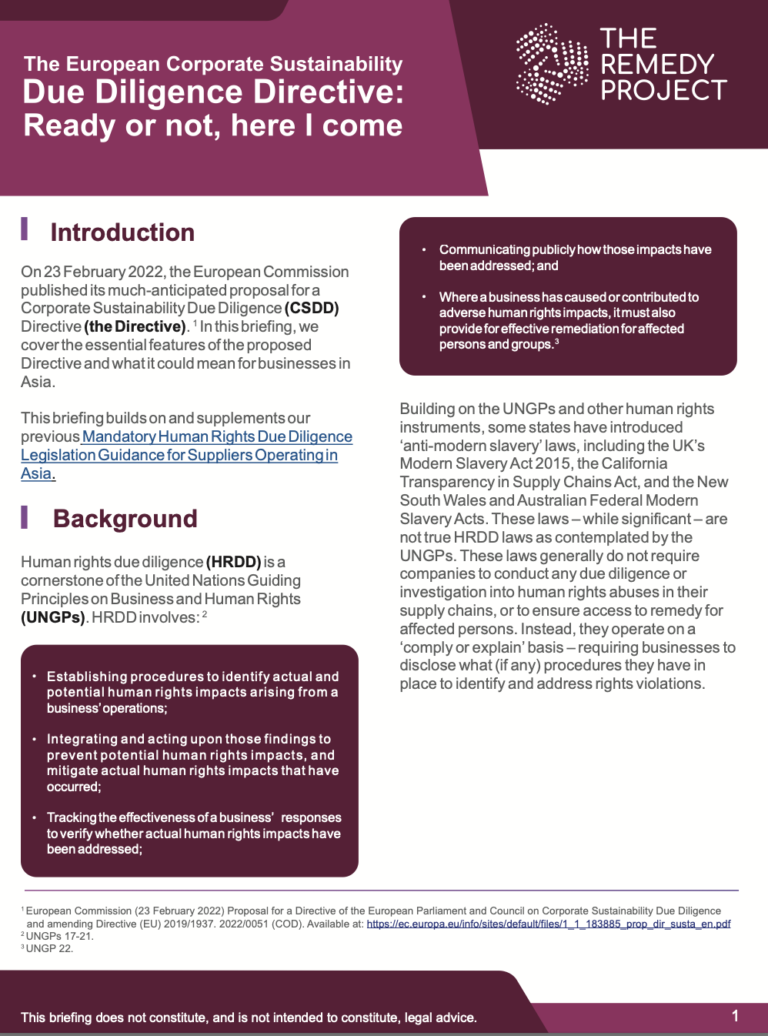Assessment of Forced Labor Risk in the Cocoa Sector of Côte d’Ivoire
GuidanceThis Verité study consists of desk research (including academic literature, government reports, civil society reports, statistical analysis of previous studies, and a legal review) and two weeks of field research in Côte d’Ivoire in November –...Read More

